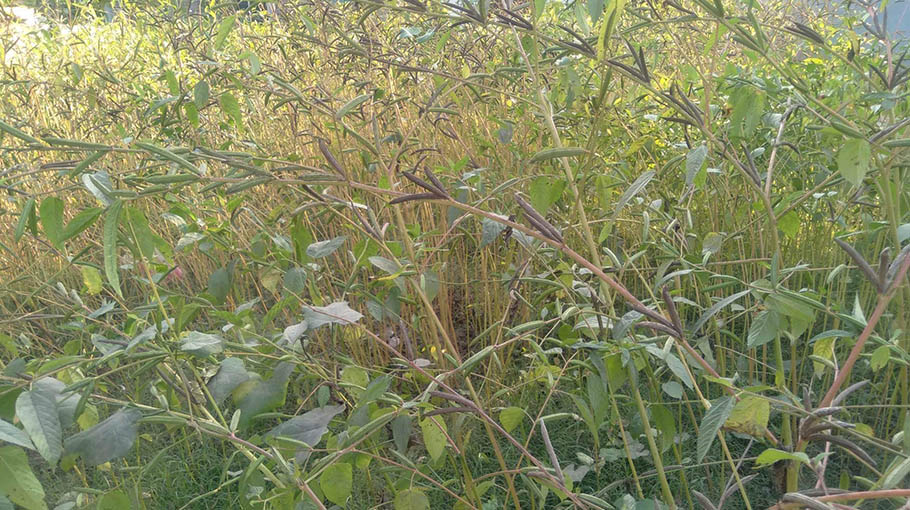Early jute seed harvesting in Pabna

At Chatmohar in Pabna, success has been achieved by trying to produce jute seeds without cultivation. Farmers can be motivated to produce jute seeds by this success.
It is reported that Bari-1, O-9897 varieties of Tosha jute and Indian and local varieties of jute are generally grown in Chatmohar. In jute cultivation, the farmers of this area use local varieties as well as Indian varieties of jute seeds.
In the past no cultivation of jute seed was attempted in this area. The ideal time for jute sowing is from 15th August to 15th September. Most of the land is not suitable for cultivation due to frequent rains during this time. As a result farmers are not interested in jute seed production. In the financial year 2021-22, jute seeds were sown without cultivation in some lands in Pabna on an experimental basis. Success is also found in it. Based on this source, jute seeds were sown experimentally without cultivation in the fallow land in front of the office of Chatmohar Assistant Jute Development Officer. Jute seeds can be collected from this land in next few weeks. Those concerned are also hoping to get a good yield.
According to the office of Deputy Assistant Jute Development Officer of Chatmohar Upazila, with the aim of producing 3 thousand kg of jute seeds in Chatmohar this season, jute seeds have been sown in 70 plots in 8 acres of land by 70 farmers of Chatmohar. Jute seeds will be collected from this land soon. In the financial year 2021-2022, 65 farmers produced 2,800 kg of seeds on 6 acres of land. The jute department buys 160 kg of seeds from the farmers. The farmers of the area sold the remaining seeds at the rate of Tk 250 to 275 per kg and cultivated jute by sowing the land themselves. Usually 35 to 40 kg of jute seeds are available in every ten percent of land which costs about 7 to 8 thousand rupees. It takes about five months from sowing to harvesting the seeds.
Enamul Haque, a farmer of Ramnagar village in the upazila, said that one has to take risks to produce jute seeds during the monsoon season. Jute cultivation requires little seed. Therefore, farmers do not show interest in jute seed production during the jute seed production season. At that time they grow other crops on the land and buy seeds during the jute cultivation season and grow jute.
Jute Department Chatmohar Pabna Deputy Assistant Jute Development Officer Bachchu Mia said that most of the land gets flooded with monsoon water during Nabi jute seed production season. It takes more time to make this land suitable for cultivation. Besides, due to occasional rains, many lands are unfit for cultivation. By this time, Nabi jute seed production season is almost over.
As a result, many people cannot sow jute seeds in the land. There is a possibility of damage even after sowing. So farmers become disinterested in seed production. We have succeeded in cultivating jute seeds without tillage in the current season. This technology is a promising aspect of jute seed production. If the farmers can be given an idea about this technology, the farmers can overcome the difficulties and be interested in jute seed production.
Pabna District Jute Development Officer Mamunur Rashid said that due to monsoons and rains the production of Nabi jute seeds has been disrupted and efforts are being made to produce jute seeds without cultivation. We are also getting success in this. If more jute seeds can be produced with this technology in the future, it can play a big role in jute cultivation.



